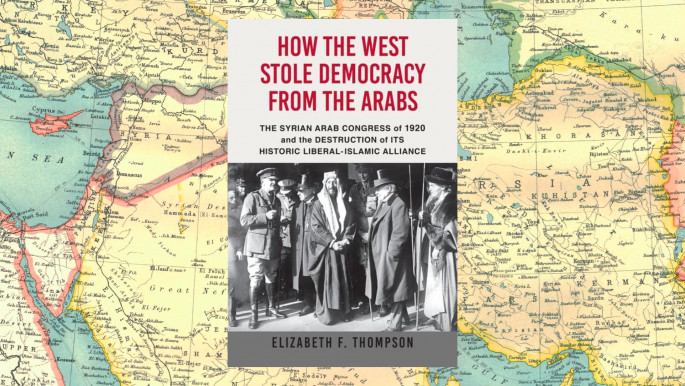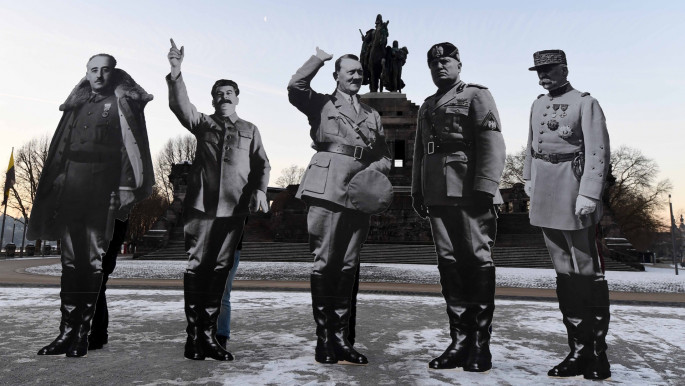Asylum for Sale: Profit and Protest in the Migration Industry
The new title, published by PM Press, seeks to document securitisation, resilience, social capital, and ultimately profit-making in the migration industry.
As amid the turmoil, political and military chaos, immiseration and upheaval associated with people leaving their homes to take unsafe journeys in search of refuge lies a seemingly economic goldmine.
For observers of the subject, the notion that there's money to be made from building walls and patrolling borders might not come as a surprise, but the book's careful individual narration from different players embroiled in this complex web – asylum seekers, refugees, detainees, border guards, experts, NGOs, social workers, anarchists, journalists, advocates and artists – brings to light a nuanced tapestry where the result is a new, odd and slightly counter-intuitive industry.
Yes, there's profit to be made, but there are also gains in the form of expertise, the alleviation of state responsibility, political dividends, and saviourism.
 |
Human suffering is big business and we absolutely should be talking about that more |
 |
The chapters of the book take place in different settings, many of which have featured prominently in high-profile accounts of asylum and detention. Manus and Nauru, Turkey, the US, the hotspots of Italy and Greece, the hostile environment of the UK and Libya, and the countries spurring a caravan of departure from South and Central America among others, set the stage for author accounts of violence, displacement and mistreatment that has led to profit.
It combines writing and research with more visual depictions such as drawings and photography, which invite readers into exploration and discussion, edited by Siobhán McGuirk, an anthropologist, journalist and post-doctoral researcher at Goldsmiths University, and Adrienne Pine, a critical medical anthropologist. The foreword is written by cultural and medical anthropologist Seth M. Holmes.
 |
|
| Read more from TNA's Book Club: How the West Stole Democracy from the Arabs |
Stories in the press and within campaigns have often focused on trauma and highlight moral obligations to help, says McGuirk, speaking to The New Arab about the volume, while deeper dives into immigration policy are more on race and nation. "We wanted to contribute another dimension to these important conversations by encouraging readers to think about asylum specifically in the context of neoliberal capitalism".
In addition, it aims to zoom out onto the bigger picture of migration, including long histories of colonial extraction, Western support for oppressive regimes, neoliberal structural adjustment policies, wars for geopolitical and economic gain and the impacts of climate change. "These factors are all tied to profit-making - with flows of money streaming primarily into the West".
The book is divided into five parts and 25 chapters, and starts with the most obvious point of reference, which is people crossing borders. The first story challenges the preconceived idea of asylum-seeking, and who is deemed worthy of rescue and refuge. José López tells his story of fleeing Honduras, a country he describes as "in a state of undeclared and unrecognized civil war". As a gay man, he faced threats of violence in the Central American republic, but on trying to claim asylum in the US, he was told, "Asylum is for Russians and Chinese people, not for Hondurans".
It hints at what McGuirk and Pine argue in their introductory chapter – that the inception of formal frameworks around refugee-ism, i.e., the UN Refugee Convention 1951, had more to do with "institutionalizing the Cold War ideological framework that positioned capitalism as the savior for political refugees seeking an escape from communism".
 |
These factors are all tied to profit-making - with flows of money streaming primarily into the West |  |
Lopez's account thus sets the tone for a reinforcing series of accounts that demonstrate that there is something to gain from every process in the asylum and migration process, including granting asylum itself.
In his waiting game in an immigration prison, Lopez notes that "everything costs money. From attorneys to phone calls to extra food, everything is expensive... It's an entire economic system". He finishes his chapter alluding to the US investment into military interventions in Honduras that has triggered people to flee from oppressive governments in the first place.
Part two of the book brings in further narratives of the detention complex within which lies a multivariate system of subcontracting, nepotism and false accounting. This involves "multinationals that have amassed their wealth through globalisation and the circulation of capital and goods" and who "also now reap financial benefits from the restriction of the movement of human beings," writes Louise Tassin in her chapter From 'Paris to Lampedusa: The New Business of Migrant Detention in Europe'.
 |
|
| Read more from TNA's Book Club: When We Were Arabs: A Jewish Family's Forgotten History |
Tassin's account is followed by other manifestations of profit-making and its use of low-cost labour. From detainees "as cash cows for the Home Office", to the banality of cruelty from guards who are underpaid by multi-million-pound corporations. Even the enhanced vulnerability of "displaced" bodies allows unscrupulous actors to commodify them by preying on their vulnerability.
Part three begins by delving into the military and security industry's role in perpetuating a "refugee regime" through the European example, with Mark Akkerman noting "the arms industry plays a significant role in formulating the E.U.'s foreign and security policy agenda".
This section on 'Complex Industries/Industrial Complexes' also notes the benefit to notionally charitable entities such as UNHCR and NGOs operating in this space. McGuirk even contributes a chapter on how experts like herself and others can feed into this complex 'complex' and should, therefore, reflect on their role within it.
The benefit to NGOs, charities and volunteers entering arenas of refugee trauma is further explored in part four. While they may be well-meaning their necessary entanglement with the state, local authorities, social service providers and the legal system can interfere with their magnanimous aims. Many non-state actors have profited in some way from this relationship, which also raises questions over the alleviation of state responsibility.
For instance, when the German grassroots movement Freifunk started its free Wi-Fi initiative for people in the migration system, some community organisers saw that as a way of filling gaps in service provision. The final part, entitled 'Aftermaths', addresses "failed" asylum seekers' experiences and their continuing precarity and the resistance to deportation.
 |
Those responsible for most carbon emissions are also fortifying their borders and profiting from people fleeing the effects of climate change |  |
In addition to their insight, two of the chapters' authors use art to depict the processes and experiences of movement between countries and continents. For instance, Joël van Houdt pasted his photography of Afghan and European migration around the Ministry of Information in Kabul after Afghanistan was excluded from the European Union–Turkey refugee deal.
Visuals like this are used throughout the book. "Prose can be restrictive, and some experiences are simply impossible to put into words", explains McGuirk. "Art more readily allows expression of non-linear, abstract, even confounding thoughts and analyses. It also requires that the reader or viewer adjust their perspective in order to make sense of a scene shot through an unfamiliar lens. It invites readers to look out at the world from an insider view".
 |
|
| Read more from TNA's Book Club: The Dictatorship Syndrome by Alaa Al Aswany |
There are then, of course, the vast sums of money and its benefactors cited through various chapters and a window into potential future markets. Climate change could be one such avenue, as Todd Miller writes in his chapter 'Border Militarization in a Warming World'.
Those responsible for most carbon emissions are also fortifying their borders and profiting from people fleeing the effects of climate change, he says. For instance, the biometrics industry, increasingly used in border regimes, has tripled and the drone market is multiplying, forecasted to be worth $32.73 billion and $22 billion by 2022, respectively.
"Reflecting on the figures cited throughout the book, I think it is usefully jarring to realise by the end that there are billions of pounds circulating around asylum seekers globally. Human suffering is big business and we absolutely should be talking about that more."
The accumulation of this information could make the book a useful campaign tool. It could complement existing conversations that are no doubt being had and prompt fresh ones. It is also likely to fuel further outrage and encourage new solidarities towards dismantling a structure that props up corporate wealth at individuals' expense.
Sophia Akram is a researcher and communications professional with a special interest in human rights particularly across the Middle East.
Follow her on Twitter: @mssophiaakram
The New Arab Book Club: Click on our Special Contents tab to read more book reviews and interviews with authors:
 |
|





 Follow the Middle East's top stories in English at The New Arab on Google News
Follow the Middle East's top stories in English at The New Arab on Google News


